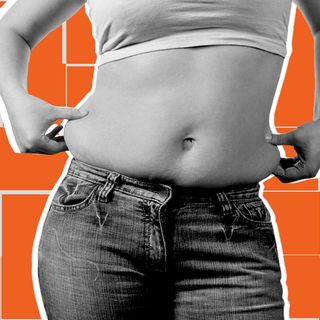
Breasts Have Microbiomes, Too, Say Researchers
How that good bacteria might protect against breast cancer is the next question.

Scientists at Wake Forest School of Medicine have found evidence that breast glands contain microbiomes that can be affected by diet, similar to gut microbiomes. The impact that this collection of good bacteria has on breast health, and how it might be used to protect against breast cancer, is the next question scientists will need to answer.
They expect the answer to be profound; the gut microbiome, the community of billions of bacteria that populate the human digestive system, is increasingly understood to have an enormous impact on human health and immunity.
Published in the current issue of the journal Cell Reports, the study used a well-established primate model of women’s health to compare the effects of two different diets on breast tissue. The female monkeys were fed either a high-fat Western diet or a plant-based Mediterranean diet for two-and-a-half years (which scientists consider to be equivalent to about eight human years).
At the end of the study, the monkey group that ate the Mediterranean diet had a distinctly different set of bacteria in their breast tissue than those that ate the Western diet. Consuming the Mediterranean diet led to about a 10-fold increase of mammary gland lactobacillus, a bacteria shown to decrease breast tumor growth in preclinical models. The Mediterranean diet also resulted in more bile acid metabolites — essentially, a stronger waste-removal system — in the breast tissue, which may also reduce breast cancer risk.
“Being able to shift the breast microbiome through diet may offer a new approach to preventing breast cancer or at least reducing the risk,” said the study’s lead author, Katherine Cook, PhD, an assistant professor of surgery hypertension and cancer biology at the medical school associated with Wake Forest Baptist Medical Center.
The team was surprised to discover that microbial communities outside of the gut could be influenced by diet, Cook noted, though discovering the link is still a far cry from being sure exactly how the diet might be used to protect against breast cancer.
Previously published research show microbiome populations can vary by geographic area. Therefore, to strengthen future studies, the team plans to obtain tissue biopsies from animals housed in different regions of the country, Cook said.
Additional pre-clinical studies are being conducted by researchers to investigate whether oral interventions, such as fish oil or probiotic supplements, can affect microbiome populations in mammary glands and in breast tumors.
As our understanding of human immunity evolves, one thing is clear: a diet based on mostly fresh fruits and vegetables, and low in fat, is an important part of staying healthy.
Related


Crash Dieting May Give You More Belly Fat, High Blood Pressure
